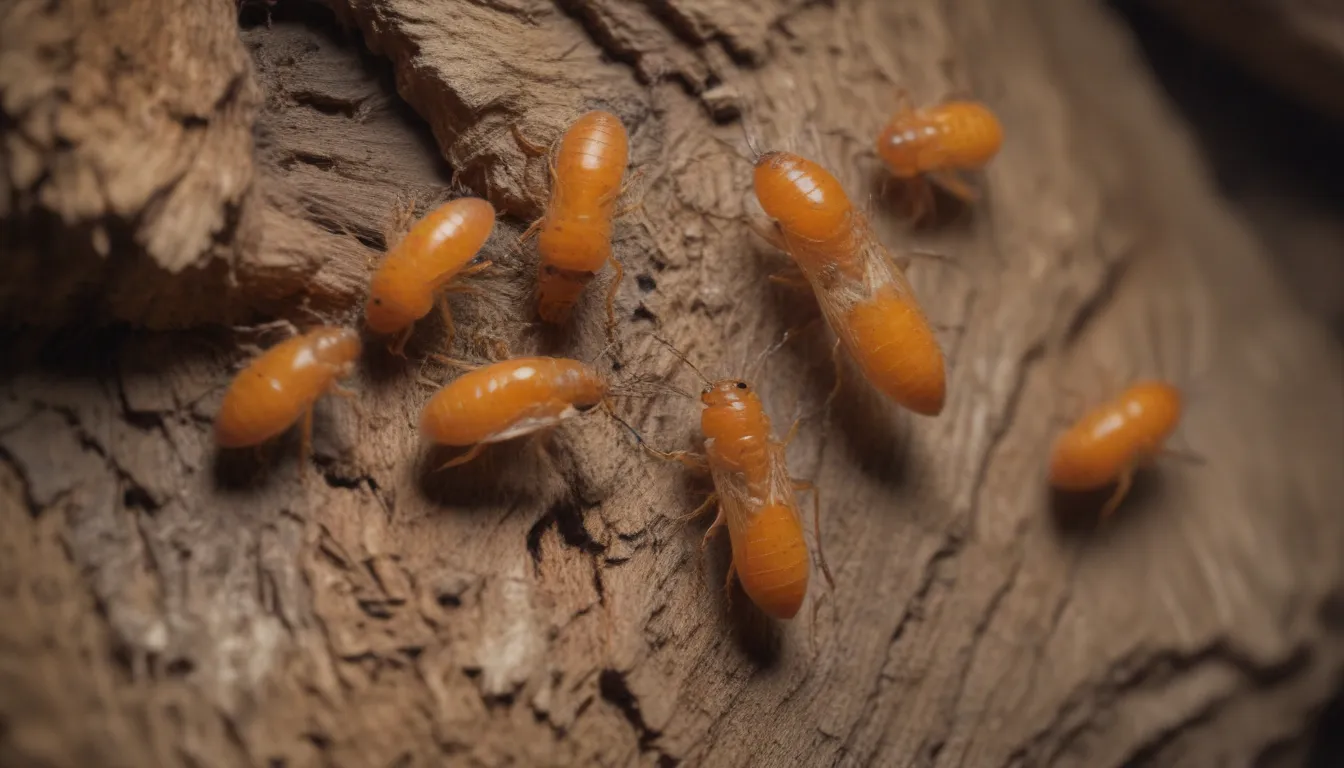The Benefits of Using Orange Oil to Treat Dry Wood Termites

Are you dealing with a pesky termite problem in your home? Have you considered using orange oil as a natural, eco-friendly solution to combat these wood-eating pests? In this comprehensive guide, we will explore the ins and outs of using orange oil to treat dry wood termites, from what it is and how it works to the pros and cons of this method. By the end of this article, you will have a clear understanding of whether orange oil is the right choice for you in your battle against termites.
What is Orange Oil?
Orange oil, despite its citrusy aroma, is not simply a fruit juice. It is actually an extract derived from orange peels, known as d-limonene, an oily substance that is insoluble in water. This versatile oil is commonly used for pest control and cleaning purposes, making it a popular choice for homeowners looking for a natural alternative to toxic chemicals. You can easily find orange oil and pre-formulated orange oil pesticides at your local home improvement store.
While orange peel shavings can add flavor to foods and a small dose of orange oil is thought to have health benefits, large amounts of the oil can cause adverse effects such as vomiting and nausea in humans. These effects are even more pronounced when the oil is used to combat insect pests. Orange oil has proven to be deadly to a variety of insects, including cockroaches, ants, dust mites, flies, wasps, spiders, crickets, and most importantly, termites.
Orange Oil as a Termiticide
Orange oil is increasingly being promoted as a natural herbicide and insecticide, with a particular emphasis on its effectiveness in eradicating dry wood termites. These termites, which thrive on hard, dry wood, are no match for the powerful properties of orange oil. The active ingredient in orange oil, d-limonene, is known to dissolve the termite’s exoskeleton, leading to the destruction of their cell membranes and eventual death due to water and protein loss.
Fun Fact:
In the 1930s, researchers in California used arsenic injections to combat dry wood termites, as it proved to be an effective pesticide. However, the toxic residues of arsenic posed significant dangers to other animals, including humans. This led to the search for alternative methods of termite control, ultimately paving the way for the use of orange oil as a safer and more eco-friendly solution.
How to Apply Orange Oil for Termites
When a dry wood termite infestation is identified, the recommended treatment involves drilling holes into the infested wood and injecting orange oil into the galleries where the termites are feeding. It is crucial to locate and treat the insect galleries for maximum effectiveness. Studies have shown that the residual effects of orange oil treatment can last from three days to three weeks, with most termites being killed upon contact with the oil. Additionally, orange oil acts as a deterrent, preventing termites from feeding and causing them to eventually starve.
After treatment, it is essential for homeowners to monitor their property for signs of new termite infestations. Trained termite-sniffing dogs have proven to be incredibly successful in detecting hidden or previously undetected termite colonies. While orange oil treatment is not a preventative measure, it should be applied whenever a new infestation is discovered.
Tip:
To simplify the application process, use a multi-use 1-gallon sprayer to inject a solution of 2 ounces of orange oil and 1 gallon of water into the drilled holes. Always wear protective gloves when handling orange oil to ensure safety.
Pros and Cons of Orange Oil Termite Treatment
As with any pest control method, using orange oil to treat termites comes with its own set of advantages and disadvantages. Let’s take a closer look at the pros and cons of this natural solution:
Pros:
- Eco-friendly and non-toxic
- Effective against a wide range of insects
- Easy to apply and readily available
Cons:
- Requires repeated applications for new infestations
- May be less effective compared to commercial pesticides
- Not a preventative measure against termites
Orange Oil vs. Fumigation
When it comes to treating termite infestations, the debate between orange oil and fumigation arises. Here are some key points to consider:
- Fumigation treatment involves extensive preparation and tenting of the home, making it a more cumbersome and expensive option.
- Regular use of orange oil for DIY treatments or by pest control companies is less costly and more convenient, although fumigation can be more effective.
- Fumigation requires evacuating humans, pets, and plants from the premises, as well as removing all food items.
In conclusion, while fumigation may offer a more powerful solution, orange oil provides a natural and less intrusive alternative for termite control.
The Bottom Line
Orange oil is a promising option for combatting dry wood termites, offering a safe and eco-friendly alternative to traditional pesticides. However, it is essential to understand that orange oil may not be as potent as other commercial treatments, requiring repeated applications for long-term effectiveness. By weighing the pros and cons of using orange oil, homeowners can make an informed decision on the best course of action for termite control.
For further reading on this topic, references such as the “Material Safety Data Sheet – Orange Oil” from Northwest Missouri State University and studies on the effects of orange oil on termites in the Journal of Economic Entomology can provide additional insights into the efficacy of this treatment method.
In conclusion, if you’re looking for a natural, environmentally friendly solution to combat dry wood termites in your home, orange oil may be worth considering. With its proven effectiveness against a variety of insects and minimal environmental impact, orange oil offers a promising alternative for homeowners seeking a safer and more sustainable approach to pest control.





